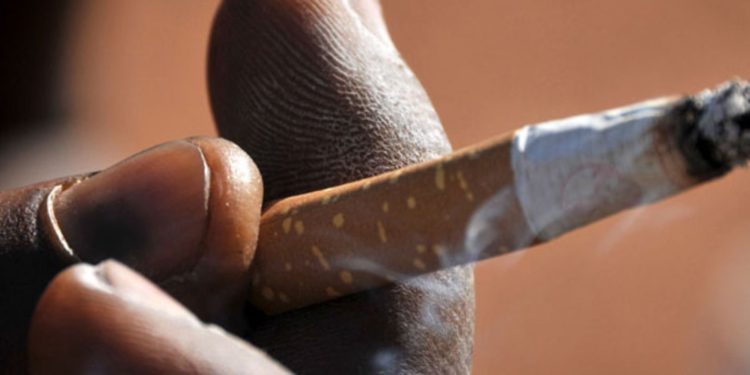Activists in Uganda have raised an alarm over the worrying high smoking rates among youths aged 17 to 40 and low-income earners. They report alarming statistics, revealing that Ugandans begin smoking as early as 9 years old, often in tobacco-cultivating communities.
The problem extends even further, with Joel Sawa, team leader at Tobacco Harm Reduction Uganda, highlighting the prevalence of smoking in universities and high schools, including cannabis and shisha use among students.
The World Health Organization (WHO) paints a grim picture, estimating that over 15% of boys and 13% of girls aged 13-15 take up smoking annually. This translates to a staggering 204 Ugandans succumbing to tobacco-related illnesses every week, exceeding the combined death toll from HIV, tuberculosis, malaria, accidents, and crime.
According to WHO, one in ten Ugandans smokes daily, incurring a significant economic burden: with tobacco use accounting for an estimated USD 126 million in direct medical care for adults and indirect costs due to lost productivity as a result of premature mortality and morbidity.
Activists under their organization urge the government to implement alternative livelihoods to replace tobacco dependence. They point to the ineffectiveness of the 2015 Tobacco Control Act, which prohibits tobacco promotion and use but has failed to curb the epidemic.
The Act, bans tobacco advertising, promotion, and sponsorship, mandates larger health warnings on packaging with graphic illustrations, and emphasizes the harm smoking inflicts on individuals and their surroundings.
Activists say stricter enforcement and comprehensive support systems for tobacco farmers transitioning to alternative crops are crucial to turn the tide against this deadly epidemic.








